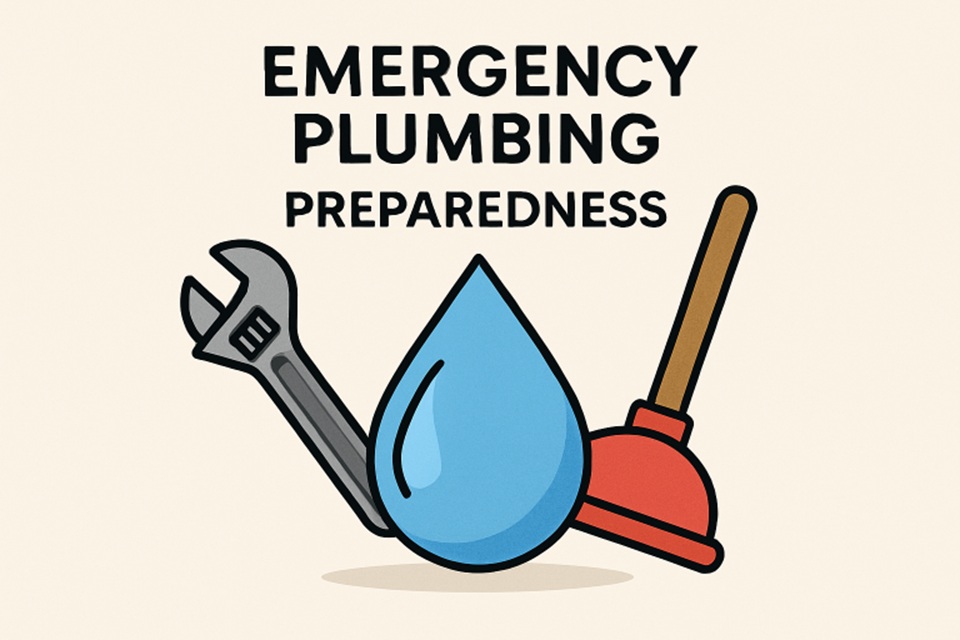Key Takeaways:
- Immediate action and basic plumbing knowledge can greatly limit home damage.
- Being familiar with your home’s plumbing system prepares you for emergencies.
- Routine checks and maintenance lower the chances of plumbing crises.
Plumbing emergencies can happen without warning, leading to significant disruption and stress for any homeowner. From burst pipes to overflowing toilets, the speed and manner in which you respond can dramatically reduce damage and expenses. If you find yourself panicked and in need of an immediate solution, consult with emergency plumbing service in Gaithersburg Md – trusted experts for specialized help. This comprehensive guide will help you manage common plumbing crises quickly and effectively, so you can protect your property and restore safety to your household.
Preparation and timely action are your best defenses in a plumbing crisis. Understanding where your main shutoff valve is located, how to perform temporary fixes, and when to call for professional backup will give you confidence when facing the unexpected. Armed with the right knowledge and tools, you can keep headaches—and water damage—to a minimum while waiting for expert repairs. Preventive maintenance also plays a vital role in reducing these emergencies.
Identify Your Main Water Shutoff Valve
Knowing the location of your main water shutoff is the single most important factor in stopping a plumbing emergency in its tracks. Most shutoff valves are located either near your home’s perimeter or in the lowest level, close to where the water enters the property. Turning this valve clockwise will stop all water flow to your home, halting further damage. For appliance or fixture-specific leaks, look for smaller shutoff valves below sinks and toilets. Familiarizing yourself with these controls in advance can save precious time and potentially protect your home from severe damage.
Turn Off The Water Heater
After the water supply is shut off, promptly turn off your water heater to avoid overheating or system damage. Gas water heaters require you to shut off the gas supply first, then toggle the power. Electric units can be turned off at the breaker. This step shields your heater from overheating or rupturing while the system is empty. Ignoring this step could result in irreparable damage or significant safety hazards, especially in cases involving hot water emergencies. These preventative actions are critical for controlling both water and energy-related risks.
Address Minor Leaks
While awaiting professional repair, managing small leaks can help restrict water exposure and keep your home safe. Place buckets or pans beneath active drips to collect water, and use towels to soak up excess moisture around the area. If you spot a pinhole leak in a pipe, you can temporarily seal it with plumber’s tape or a commercial pipe clamp. These fast fixes won’t last forever, but they do offer vital relief, buying you time and lessening the extent of the water damage.
Clear Drains & Taps
Once you’ve shut off your home’s main water supply, open all drains and outdoor spigots to allow the remaining water in the system to drain out. This simple act reduces residual pressure and mitigates the risk of additional seepage or bursts. For blocked drains, try to clear them mechanically with a plunger or a plumber’s snake. If the clog persists, avoid harsh chemicals that could complicate the problem.
Avoid Chemical Drain Cleaners
Many homeowners are tempted to use chemical drain cleaners for fast relief, but these can often corrode pipes, damage your plumbing infrastructure, and even present hazardous fumes. Opt instead for a plunger or a manual snake for simple blockages, or wait for professional intervention. If you do opt to buy a commercial product, ensure it is safe for your specific pipe materials, as misuse can cause more problems than it solves.
Call A Professional Plumber
As soon as you have stabilized the situation, contact a licensed plumber for expert assistance. Provide them with as much detail as possible about the location and severity of the issue so they arrive prepared to resolve it quickly. Many skilled plumbers offer emergency services day or night; don’t hesitate to contact them if a situation seems beyond your control.
Prepare An Emergency Plumbing Kit
Building a basic plumbing emergency kit can make a significant difference when disaster strikes. Essential kit items should include a durable plunger, an adjustable wrench, plumber’s tape, rubber gloves, and a flashlight with extra batteries. These tools can enable immediate action and help manage minor problems as you wait for professional help to arrive.
Engage In Preventive Maintenance
Prevent problems by doing routine inspections for leaks, corrosion, or blocked drains. Schedule annual professional checkups to catch hidden issues, extend plumbing lifespan, and save money. Early detection and maintenance are vital for homeowners. Plumbing emergencies can be stressful, but quick action and expert help can protect your home and finances. Call professionals for major issues to ensure safe, proper repairs and peace of mind.
Final Thoughts
Plumbing emergencies can feel overwhelming, but being prepared and knowing the right steps to take can make all the difference. From shutting off the main water valve to assembling an emergency kit and calling a professional when needed, these actions give you greater control over unexpected issues. With a mix of preventive care and quick responses, you can safeguard your home, minimize costly damage, and maintain peace of mind.
